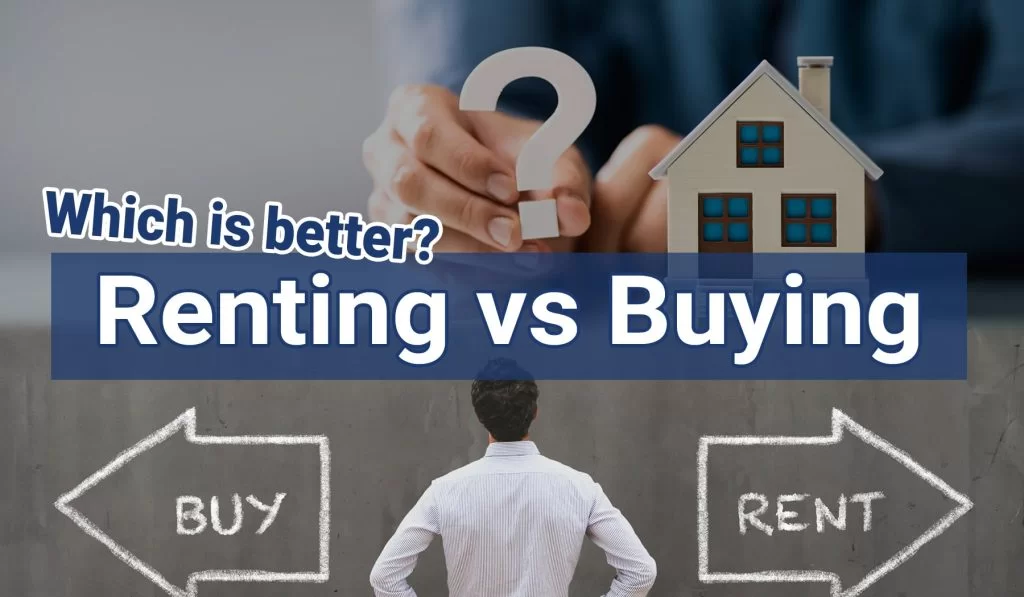The Difference Between Renting and Buying a Home

For individuals considering their housing options, understanding the differences between renting and buying a home is essential. Go right here to explore the nuances of each choice and make an informed decision about your housing needs. In this article, we’ll delve into the advantages of renting a home for flexibility and lower upfront costs, the benefits of buying a home for long-term investment and personalization, and considerations for prospective renters and buyers in the housing market to get go right here.
Introduction to Renting and Buying Homes
Renting and buying homes represent two distinct paths to housing, each with its own set of advantages and considerations. For prospective homeowners, the decision between renting and buying requires careful thought and consideration of individual circumstances and preferences. Whether opting for the flexibility of renting or the long-term investment potential of buying, understanding the differences between the two options is crucial.
Advantages of Renting a Home
Renting a home offers several advantages for individuals seeking flexibility and lower financial commitments.
Flexibility and Mobility
One of the primary benefits of renting is the flexibility it affords tenants. With short-term lease agreements, renters have the freedom to relocate more easily without the financial burden of selling a property. This flexibility is particularly beneficial for individuals who anticipate changes in their living situation or career.
Lower Upfront Costs
Renting typically requires lower upfront costs compared to buying a home. With no down payment required, renters can move into a property with minimal financial commitment. Additionally, landlords are responsible for most maintenance and repair expenses, alleviating the financial burden on renters.
Access to Amenities
Many rental properties offer access to amenities such as pools, gyms, and common areas. These shared facilities enhance the overall living experience for renters and may come at a lower cost compared to owning a home with similar amenities. Professional property management ensures that maintenance and upkeep are handled efficiently.
Benefits of Buying a Home
Buying a home offers numerous benefits for individuals seeking long-term stability and investment opportunities.
Long-Term Investment
Homeownership represents a long-term investment with the potential for equity building and appreciation. Over time, homeowners accumulate equity in their property, which can be leveraged for future financial opportunities such as home renovations or retirement planning. Additionally, real estate historically appreciates in value over the long term, providing homeowners with a valuable asset.
Personalization and Control
Owning a home allows for greater personalization and control over living spaces. Homeowners have the freedom to renovate, decorate, and modify their property to suit their preferences and lifestyle. This sense of ownership and control fosters a greater sense of pride and satisfaction in homeownership.
Tax Benefits and Financial Stability
Homeownership offers several tax benefits and financial stability advantages. Mortgage interest deductions and potential tax credits can result in significant savings for homeowners during tax season. Additionally, owning a home provides a hedge against inflation and offers stability in housing expenses over the long term.
Considerations for Prospective Homebuyers
For individuals considering homeownership, several factors should be taken into account to make an informed decision.
Financial Preparedness
Before buying a home, prospective buyers should assess their financial preparedness. This includes evaluating their budget, savings goals, credit score, and debt-to-income ratio. Pre-approval for a mortgage loan can provide insight into affordability and help streamline the homebuying process.
Long-Term Plans and Lifestyle
Homebuyers should consider their long-term plans and lifestyle preferences when purchasing a home. Factors such as stability, future family needs, and location preferences should inform the decision-making process. Homeownership is a significant commitment that requires careful consideration of individual circumstances and goals.
Market Conditions and Timing
Timing is crucial in the real estate market, and buyers should pay attention to market conditions and trends. Factors such as interest rates, housing market trends, and professional guidance can influence the timing of a home purchase. Working with a trusted real estate professional can provide valuable insight and guidance throughout the homebuying process.
Conclusion: Making an Informed Decision About Housing
In conclusion, the decision between renting and buying a home depends on individual circumstances, preferences, and financial goals. Whether opting for the flexibility of renting or the long-term investment potential of buying, it’s essential to make an informed decision based on careful consideration of the advantages and considerations of each option. Trust Town & Country Realty Corvallis to provide expert guidance and support in navigating the housing market and finding the right housing solution for your needs.



